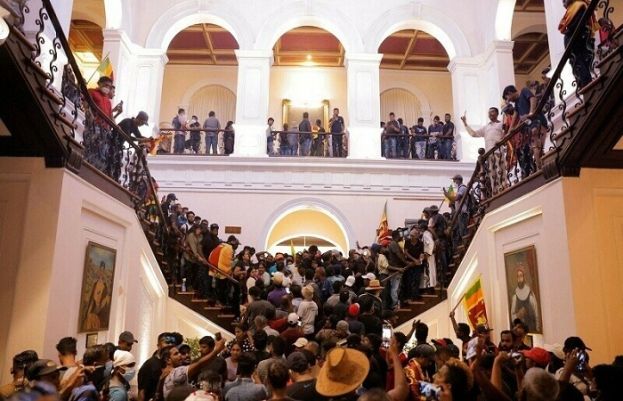Voting runs from 6:00 am (0500 GMT) to 10:00 pm at some 11,000 polling stations across the North African country, while there is no clarity yet on when the results will be announced.
Tunisians have begun voting in a referendum on a new constitution that critics of President Kais Saied fear will hurt the democracy that emerged from a 2011 revolution by handing him nearly total power.
Monday's vote is being held on the first anniversary of Saied's ousting of an elected parliament, when he established emergency rule and began governing by fiat.
Few people were out when polls opened at 0500 GMT, but at Rue Marseilles polling station in downtown Tunis, Illyes Moujahed was first in line, saying Saied was the only hope.
"I'm here to save Tunisia from collapse. To save it from years of corruption and failure," he said.
It is not clear when the results will be announced after polls close at 2100 GMT, but with little apparent enthusiasm for the vote among most Tunisians and a boycott by major parties, analysts expect a 'yes' vote with low turnout.
Around 9.3 million out of Tunisia's 12 million people — civilians aged over 18 — have opted in or been automatically registered to vote, according to the ISIE electoral commission. They include about 356,000 registered overseas.
READ MORE: Tunisian union fears proposed constitution could threaten democracy
[embed]https://www.youtube.com/watch?v=QCefgK2cHMA[/embed]
Visible disunity
Under Saied's own rules for the referendum, no minimum level of participation is needed to approve the new constitution. They only stipulate it will come into effect once the final results are published and do not say what happens if voters reject it.
Saied has hailed his changes as the foundation of a new Tunisian republic to put the revolution back on course and end years of political resistance to change and economic stagnation. His foes accuse him of a coup.
While nearly all major political parties and civil society organisations have denounced Saied's unilateral approach to rewriting the constitution and the legitimacy of the referendum, they have failed to build a united front.
Disunity was visible in protests against Saied in recent days. The Ennahda, the biggest party in parliament, took part in a protest on Saturday. Civil society organisations and smaller parties held one on Friday. A party that backed the pre-revolution autocracy held its own on both days.
The protests attracted only small numbers, but rallies organised by Saied supporters have also had only modest attendance and there has been little sign of excitement around the campaign.
Most Tunisians remain focused on the dire economy and rising prices.
However, the economic decline since 2011 has left many people angry at the parties that have governed since the revolution and disillusioned with the political system they ran.
"I don't support Saied, but I will vote 'yes' in the referendum because those protesting against it are the main cause of our problems for the past decade," said Mohammed, a Tripoli resident.
Of the three parliamentary elections and two presidential elections since the revolution, the lowest turnout, of 41 percent, was in 2019 for the chamber that Saied has dissolved.
READ MORE: Leader of Tunisian constitution committee criticises president's draft
Source https://www.globalcourant.com/tunisia-votes-on-new-constitution-bolstering-presidents-grip-on-power/?feed_id=1734&_unique_id=62de3f66da39f


